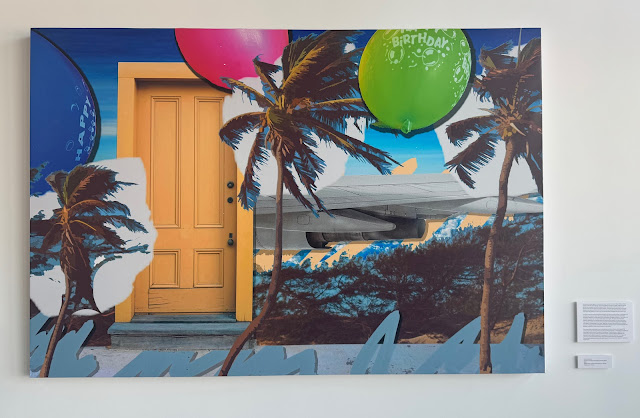JY: Please tell me about your practice: What do you make work about? How do you go about making your work? What do you think about when making your work? Do you still make work?
SC: My MA final project was about "Anxiety". 2019 is the year when the pandemic began, and the whole world started to lock down as we faced the deadly virus. During this challenging time, I came to the UK for the first time to study for a master's degree. When I was studying, I found that most people faced mental issues and thought it was a big topic to which we should pay attention. So, I utilised textiles as my medium to tell the story of my mental changes over 50 days. In my final artwork, audiences can clearly see the degrees of my anxiety through the yarn. The longer the yarn, the more anxious I was. I hope that people can seriously think about this issue. Anxiety is not a disease; everyone may feel anxiety sometimes, and we should embrace and face it properly to improve the world. And this is also the reason that I keep going with my textile design.
JY: How was studying and finishing your degree? What had the most impact on the work you made and make now?
SC: It was a valuable experience to study abroad and meet people from different countries. During my studies at
Chelsea College of Arts,
our course focused on "Sustainable Design", which is actually not only about environmental sustainability, but also about social sustainability. At this point, my research focused on "
Craftivism", an activism that gently expresses and does justice to today's social issues. Through craftivism, I realised that textiles are not just the fabrics we wear or use daily.
JY: Based on your experiences, do you have any problem-solving advice for other artists & designers?
SC: Sometimes, people get stuck on their projects or lose their ideas. When that happens, I suggest listening to music, walking outside or chatting with a friend. After relaxing your mind, you may see things differently.
JY: What are your immediate concerns or interests, both personally and professionally?
SC: As a textile designer, I always think about how my textiles can be different and bring positive energy to society. So, after I graduated with a master's degree from UAL, I focused on mental health issues that people experience in their daily life. I personally enjoy crafting things by hand and researching theories about mental health. Professionally, I plan to create my own brand to help people release their minds and enhance their mental well-being. I am interested in embroidering words on daily-use textiles, such as pillowcases, which I hope raise awareness of mental health issues.
JY: Do you have any questions for me, other artists, or anyone further afield?
SC: How do you become a successful artist or designer? How do you survive in the same industry if you start your own business?
JY: I recently participated in the London Creative Network programme at [space], a tailored professional development programme for London-based visual artists, craft makers and photographers that unfortunately ended. However, they capture much of their development content, which you may be able to access. The UAL offers support for graduates (see
here), including a
2022 Graduate Employability Moodle. I recommend that graduates register as sole traders and learn about freelance business models. Fine Art, Textiles, Graphic, and Theatre Design will have different ways of establishing your own business selling services or products. See
here for information on setting yourself up as a sole trader in the UK. For more about different business models for the arts and creative industries in the UK, check out articles by the
British Council and
Culture Hive. You can also find information on start-up companies at
UkStartUps.org and innovative incubation programmes at
Creative UK. That will give you an excellent place to start. You may also want to check out UAL's
Creative Futures,
Creative Enterprise Awards, and information on
international start-up visas for non-UK residence entrepreneurs looking to grow their creative businesses in the UK.
















Comments
Post a Comment